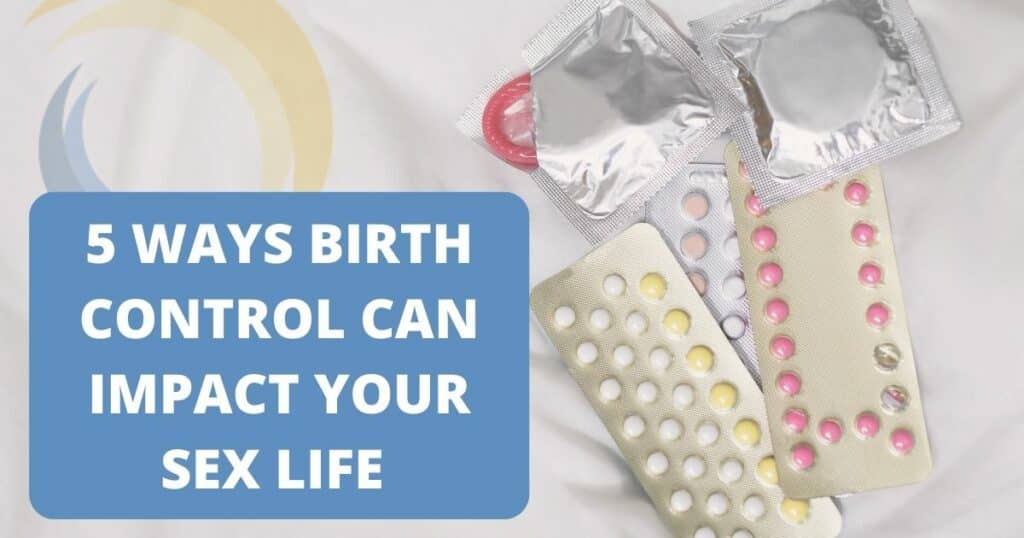Birth control is a successful way to help prevent pregnancy. However, you may have heard that it could have negative effects on your sex life. While this is true for some women, not everyone experiences these side effects: some women can’t even tell they’re on birth control at all.
Keep reading to learn more about how birth control can affect your sex life symptoms.
- How Does Birth Control Affect Sex Drive?
Yes, birth control can affect your sex drive. It’s a common side effect of certain types of birth control, including the pill, patch, and vaginal ring. However, other forms of birth control, like an IUD (intrauterine device) or implants, have no impact on your sex drive at all.
If you are taking a form of hormonal contraception that does affect your libido, you may notice that:
- You feel less interested in having sex. This is especially true if you’ve been using your method for over two years without a break to see if it affects how often you want to have sex; known as “hormonal adaptation.” Your body may be adjusting to another change in hormones (like stopping breastfeeding). In either case, these effects are temporary and should pass within six months after stopping the use of the method.
- You feel more interested in having sex now than before starting contraception.
Learn more about how you can get back to enjoying sex if you’re experiencing similar symptoms.
- Does Birth Control Make You Gain Weight?
Birth control pills can cause weight gain, water retention, bloating, and even mood swings.
The reason for this is the hormones in most birth control pills (and some other forms of hormonal contraception) are synthetic versions of estrogen and progesterone—two female sex hormones. Their function is to regulate your menstrual cycle by suppressing ovulation and making it harder for sperm to reach an egg.
When you take the pill, synthetic versions of these hormones circulate throughout your body as they absorb into the bloodstream through your stomach lining. Then they travel through the blood vessels into different organs within the body—such as your liver and kidneys—where they’re carried by proteins called binding globulins (BGs).
It’s here that these BGs attach themselves to receptors on cells’ surfaces that sense their signals before letting them pass through their walls. Once inside, they produce various reactions depending on what type of cell they’re interacting with. Some areas of the body respond to the hormones with an increase in fat storage and water retention.
Of course, noticing weight gain can be shocking and leads to a decrease in desire for sexual intercourse. We offer weight management services for you to discover sustainable ways to lose and keep the weight off.
- Does Birth Control Affect Mood?
The pill and other hormonal birth control can cause effects on your mood and mental state, including:
- Irritability
- Mood swings
- Depression
- Anxiety
These symptoms are particularly common for women taking the pill for long periods of time. If you find that your sex drive is dwindling and you’re irritable, it’s time to discuss your options with your doctor.
- Does Birth Control Cause Infertility?
Thinking about birth control causing infertility may be a bit of a shock. After all, the purpose of taking oral birth control pills is to prevent pregnancy. But, using certain forms of birth control has been linked with short-term infertility in both women and men—with mixed research on long-term effects.
The first thing to understand is how many types of contraceptives alter your body’s natural hormone levels by utilizing synthetic versions that mimic those produced by your ovaries or testes (or both). For example, hormonal IUDs work by releasing progestin into the uterus daily while simultaneously inhibiting ovulation.
The second thing we should consider—and probably more important than any other factor—is how these hormones affect sperm production in men and egg production in women.
While medicine has come a long way in the last few decades, we still have more work to do in this area. Researchers are continually publishing their results as they test new birth control methods that don’t cause long-term or permanent changes.
- Can Birth Control Make You Feel Tired?
One of the side effects of taking birth control is that it can make you tired.
Hormones are chemical messengers that communicate with every cell in your body. They play a role in everything from regulating your immune system and metabolism to helping you reproduce. And when hormone levels change, as they do with many forms of hormonal contraception, so does how you feel.
Besides causing fatigue, some types of hormonal contraceptives may also make sex uncomfortable or painful. This is usually because they increase blood flow in the pelvic area—which makes things like vaginal lubrication less effective—or causes other symptoms like bloating or nausea during sex.
How Do You Increase Your Sex Drive on Birth Control?
Birth control can improve your life in some ways and make it more challenging in others. It can help with acne, cramps, and even reduce your risk of cancer. It can also lower libido, cause fatigue, influence mood, and cause weight gain. Birth control is not a one size fits all solution.
Thankfully, we have options for improving energy and coping with unwanted side effects. Working with a health professional regarding birth control options and compatible supplements is the smartest way of navigating these types of issues.
Schedule an appointment with us to learn more about your options. We can help you balance your lifestyle and needs.

